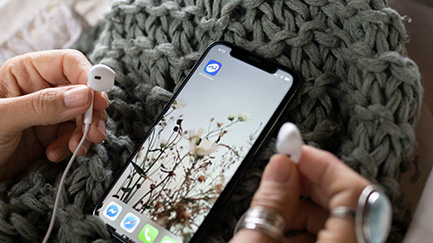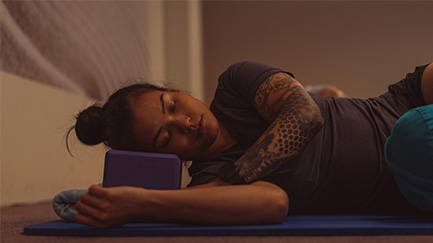During the current restrictions you may have noticed that working from home and/or isolation has led to increased time spent sitting or sedentary behaviours. The incidental physical activity such as walking to and from work, to meetings or to the photocopier has been taken away and you may not have access to a standing desk in your home office, all contributing to the increased sitting time.
Sitting for long periods of time can be harmful to your health. Time spent sitting has been linked to increased risk of cardiometabolic diseases that can impact quality of life. The risks become greater when combined with low levels of physical activity.
Undertaking stressful work whilst sitting can also have detrimental effects both mentally and physiologically, so it is a good idea to break up sitting time where possible. Regular walking breaks can help reduce blood pressure and the incidence of lower back pain which may be adding to stress levels.
Sitting isn’t all bad though. Purposeful sitting such as restorative sitting or social sitting can be beneficial physically and psychologically. As with most things, moderation is the key.
Adjusting to the current situation can be challenging, but by adopting some of the tips below, you can, not only reduce your sitting time but also increase your physical activity levels at the same time.
- Pretend you are at the office and ‘walk to your meetings’ by taking a lap around the house prior.
- Where possible, have a walking meeting when video is not required.
- Limit the time spent sitting at any one time by taking regular breaks to stretch your legs (go for a walk). Set regular alarms or reminders to help get into a habit.
- Create a little stretching or exercise routine to do during breaks or certain times of the day.
- Go for a walk before and after work to mimic the walk into and out of work.
Being too active and not resting enough can also have negative health implications, so work towards the green triangle. Work on meeting the physical activity guidelines of 150-300mins/wk and breaking up prolonged sitting to reduce the risk of developing cardiovascular disease and type 2 diabetes. Small changes can make a difference.
Written by Mates4Mates Exercise Physiologist, Nami Terada





